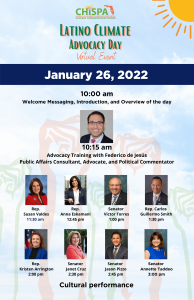Every person on this planet has inherent political power. But while casting a vote on election day is vital to the political process, it’s really only part of the equation.
Holding lawmakers accountable along the way to ensure they fulfill their promises is equally as important. Political watchdog groups like Florida Conservation Voters operate year-round for precisely this reason. To help the people of Florida reclaim and maximize their political power we use the Cycle of Accountability to guide our work. Here’s how it works:

1. Environmental Community Communicates Policy Goals to Legislators
Lobbying and grassroots training and activism
FCV does not expect all elected officials to enter office as experts in Florida’s complex environmental policy – that’s ok. However, we expect all lawmakers to equip themselves with the tools needed to meet our state’s environmental challenges.
Our leaders have the responsibility to represent the interests of the people. Education about these interests is a representative’s first, second, and third job. That’s why we exist– to support this ongoing education process and to help connect lawmakers to the most intelligent science and policy minds in the state.
The FCV policy team actively meets with elected officials to connect leaders to resources and answer questions. When we do, lawmakers receive a physical copy of the FCV Education Fund briefing book to provide an overview of Florida’s complex environmental issues.
FCV alone would never pretend to be the end-all-be-all of policy knowledge in Florida. That’s why we sought out over two dozen other conservation and social justice experts from across the state to help us draft this comprehensive book.
The Briefing Book also includes a directory with contact information for every collaborator so lawmakers can seek specific information from the most appropriate partner organization.


2. LEGISLATIVE SESSION
Legislature enacts or rejects environmental community agenda. Followed by Communication of legislative results to environmental constituency, partners, and the public.
Communication with lawmakers on our state’s environmental needs brings us to Florida’s annual legislative session (the 60-day period where FL’s elected officials pass laws).
Along with our allies and community partners, we advocate for and against specific bills that would impact our environment or democracy. We do this by testifying in committees, meeting with lawmakers and staff, and communicating with the media and the public about these complex and fast-moving issues.
For example, over 100 Central Florida residents were connected directly with lawmakers in Tallahassee when FCV’s organizing program Chispa Florida hosted the first-ever Latino Climate Day of Advocacy.
In addition to our physical organizing work, we have also invested in sophisticated digital advocacy software that makes it easy for you to contact your elected officials. In turn, this allows lawmakers to respond to their constituents and show the people that they are (or aren’t) listening.

Voting for or against a policy is more than pushing a button; it’s a sacrosanct agreement between the representative and represented. The Cycle of Accountability relies on reporting back to the public about how their elected officials voted during the critical legislative session.
Summarizing complex policies and informing our members, supporters, and the public is vital. Each year a legislative report is published to provide a condensed summary of the results of this lawmaking period.

3. Candidate Incumbent and Endorsement
Campaign advice and grassroots activism
After the dust settles on the second annual legislative session of the cycle, FCV will review the votes and actions of lawmakers during the previous years and conduct a thorough review of every candidate running in competitive elections. The goal is simple: help elect pro-conservation leaders to public office.
The entirety of the Florida House of Representatives is up for election every two years. Half of the Florida Senate (Senate terms are four years long) join the House each election. Our endorsement process involves candidate questionnaires, interviews, and extensive research before our Board of Directors votes on whether to endorse or abstain in a race.
Every two years, the Cycle of Accountability builds to this exact moment. Unlike other environmental-focused organizations that legally cannot engage in political races, FCV is ready to fight for conservation candidates and protect our champion incumbents. As a trusted messenger, our job is to ensure the public has all the information they need to make informed decisions on Election Day.
How does FCV choose who to endorse?
- Candidate qualifications and commitment to our vision, values, and racial justice and equity
- Ability for FCV to make an impact in a race
- Availability of financial resources
- Staff capacity in targeted districts

4. Election
Public elects or rejects candidates
Communicating to voters is not easy or cheap. Hundreds of Conservation Voters step up yearly to help us build the necessary financial means to fight back. And we are up against the biggest polluters in the state that want nothing more than to maintain their vice grip on power in Florida. They may be willing to throw tons of money at a race to mask a candidate’s poor record, but we have the people on our side – this means you!
To get good laws, we need good leaders. To get good leaders, we need to work together.
From polling and research, we know that Floridians love the environment and that it moves people from all parties and political affiliations when they consider candidates. Building this non-partisan “Conservation Voter Movement” is hard, exhausting work, but it is necessary. The next generation is counting on all of us to protect our water, address the climate crisis, and save what’s left of precious, natural Florida. Together, we will not let them down.

